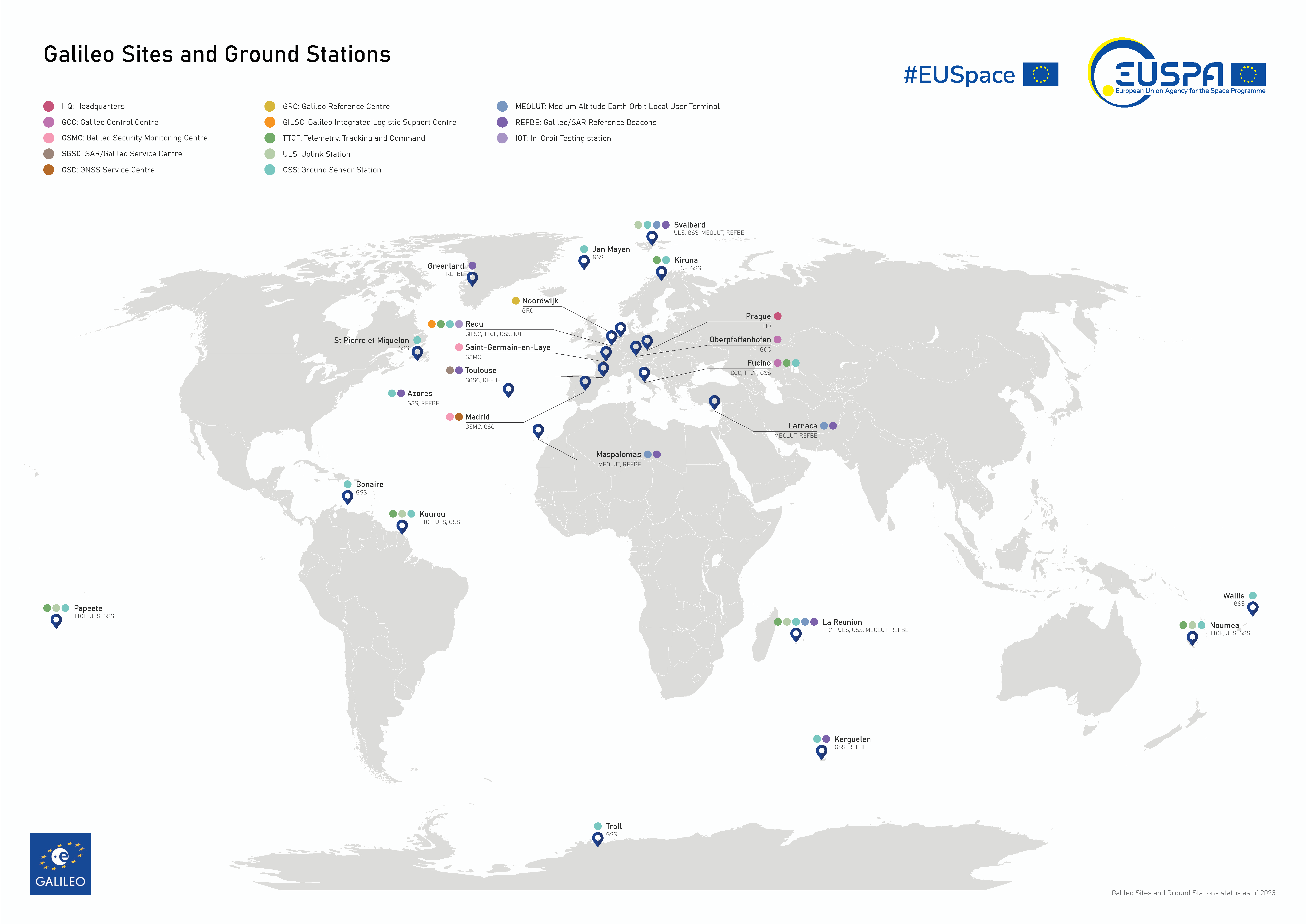Galileo
Galileo is designed to enable various satellite-based services and applications for a broad spectrum of sectors and users, ranging from aviation and maritime to agriculture and location-based services, providing Europe and European citizens with independence and sovereignty in the provision of positioning services.
As the world’s most precise GNSS programme, Galileo provides numerous benefits to businesses and billions of users worldwide. For example, when embedded in everyday products such as in-vehicle navigation devices and mobile phones (4.5 billion), Galileo ensures that users know their exact position with greater precision and accuracy than other available systems.
The services offered by Galileo are also being leveraged to help make Europe’s transport means safer and more efficient. Furthermore, these services are critical in the fight against climate change, playing a crucial role in helping Europe achieve key policy initiatives as the EU Green Deal and Digital Transformation.
Galileo also supports emergency first responders in their search and rescue efforts. Finally, by enhancing European innovation, Galileo plays a pivotal role in fostering the development of new products, services and jobs.
Programme
The Galileo Programme is owned by the EU. The European Commission has overall responsibility for the programme, managing and overseeing the implementation of all activities on behalf of the EU.
Galileo's design and system evolution, along with the technical development of its infrastructure, are entrusted to the ESA. The European Commission has delegated the operational management of the programme to EUSPA, which is responsible for the deployment, maintenance and minor evolutions of the Galileo system, and that oversees how the Galileo infrastructure is used, ensuring that Galileo services are delivered with the defined performance and without interruption.
The Galileo system comprises a ground, space and user segment.
The Galileo ground segment is spread across several EU locations and consists of:
- Galileo Security Monitoring Centre
- Galileo Service Centre
- Galileo Reference Centre
- Galileo Control Centres (GCCs)
- SAR/Galileo Service Centre
These centres are complemented by a range of instruments, including sensor stations located in some of the most remote parts of the planet. These instruments check the accuracy and signal quality of individual satellites in real time and work together to pinpoint current satellite orbits.
Together, the centres and sensors play a pivotal role in delivering Galileo’s services and ensuring both the quality of signals and the overall safety of the system.
